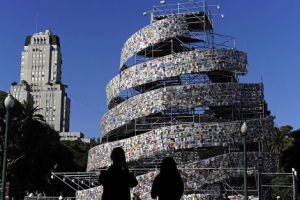Literary landscape
 The literary landscape in the Netherlands (and worldwide) was subject to change, to forces that put the current power under pressure. Some commotion is never wrong, especially when it is accompanied by further expansion of literature and its ability to evolve and spread, but the overall trend of these changes unfortunately, was driven by forces that are not benevolent towards fanciers of literature.
The literary landscape in the Netherlands (and worldwide) was subject to change, to forces that put the current power under pressure. Some commotion is never wrong, especially when it is accompanied by further expansion of literature and its ability to evolve and spread, but the overall trend of these changes unfortunately, was driven by forces that are not benevolent towards fanciers of literature.
“A free and democratic society is based on competition of ideas and heterogeneous opportunities to expose them, but the number and variety of publishers of books, magazines and newspapers since the sixties deteriorated and the range of the remaining monopolies expanded worldwide. (…) When books become a marginal market sector for media octopi like Murdoch and Viacom, with commercial entertainment tentacles, political information tentacles (news), television tentacles and publisher tentacles, but no public or literary torso, the future of words, the public domain and the literary culture that is based upon it becomes highly uncertain. When words are subordinate to images (film, television or video), while the producer sold itself for profit, democracy will probably not obtain advantage (…) Democracy thrives at the mercy of words – no words, no reason, no community and no equality.’ B.R.Barber.
A Russian commentator says: “Publishers – not only the old who are freed from the yoke of the party line, but also the new, private publishers and publishers with shareholders – are not looking for quite brilliant and original texts. They look for salable commodity.’